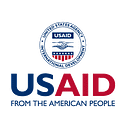Mobilizing the Private Sector to Transform Food Security and WASH
Driving Business and Environmental Sustainability
Ethiopia’s abundant natural resources and diverse ecology hold immense potential for climate resilience. Yet the country faces significant vulnerability to climate risks, primarily due to its reliance on rain-fed agriculture, poor water and waste management infrastructure, and limited investment in adapting to these challenges. To address these challenges, the USAID CATALYZE Market Systems for Growth (MS4G) Activity in Ethiopia is supporting private sector initiatives to develop and expand mitigation, adaption, and resilience capabilities in the food security and water, sanitation and hygiene (WASH) sectors.
Promoting Climate-Smart Agriculture
MS4G’s multifaceted approach includes incentivizing and resourcing partners to provide access to finance, technical support, and market linkages. One key initiative involves funding and technical support to increase non-chemical fertilizer production, which enhances soil health and fertility and mitigates methane emissions from landfills by capturing carbon in the soil, turning waste into compost.
Organic fertilizer plays a crucial role in climate-smart agriculture by addressing soil acidity (affecting approximately 40% of Ethiopia’s arable land), soil fertility, long term soil health, and crop yields, while reducing greenhouse gas emissions. MS4G supports growth-oriented firms to increase production, distribution, and sales of organic fertilizer, including biofertilizer, liquid organic fertilizer, and compost, contributing to improved agricultural productivity and food security. This work will enable the growth of 27 compost producing enterprises that are expected to supply 20,610 tons of compost a year, helping to sequester 8,244 tons of carbon in 4,122 hectares.
By promoting improved composting practices, such as rapid composting methods and vermicomposting (using earthworms), the enterprises not only address fertilizer shortages but also help manage agricultural waste effectively, contributing to climate impact mitigation by reducing methane emissions from decomposing organic waste and promoting sustainable agricultural practices.
Longtime MS4G partner, Soil & More Ethiopia, is training small businesses in sustainable composting, contributing to improved capacity in sustainable land management practices, MSME strengthening, and job creation. By training small businesses, Soil & More Ethiopia not only reduces waste and pollution but also mitigates environmental impact by diverting waste from landfills and reducing greenhouse gas emissions.
MS4G also partnered with local business accelerator ICEAddis on the Fertilizer for Food Open Innovation Challenge, aimed at funding the expansion of businesses with innovations that can enhance the production, distribution, or accessibility of affordable and effective fertilizer A panel of expert judges selected six semifinalists from 40 applicants. The awardees are engaged in businesses including the production of advanced bacterial biofertilizers designed to improve agricultural productivity and soil health, as well as organic liquid fertilizer that restores depleted soil to its natural state.
Water Security: A Cornerstone of Climate Resilience
MS4G partner, 3BL Enterprises, is addressing climate change-induced water scarcity and flooding by installing piped water systems in rural areas, ensuring that communities gain access to clean and safe drinking water. This proactive measure helps mitigate the risk of waterborne diseases and environmental pollution. Implementing efficient water management systems aids in conserving water resources by minimizing wastage and optimizing usage. Equipping piped water systems with meters encourages responsible water consumption among households, fostering reduced water wastage and heightened conservation efforts.
WaterLife, supported by funding from MS4G, is promoting innovation with its SMART Water Kiosk system powered by solar energy. This initiative not only provides communities with clean water but also reduces carbon emissions stemming from traditional boiling methods. While MS4G other partner Sinopia, focuses on transitioning existing water schemes to solar-powered systems, replacing fossil fuel dependency with sustainable solar energy to power pumps. This shift significantly decreases harmful emissions linked to fuel-based pumps utilized for community water supply, contributing to reduced carbon footprints and a more sustainable future.
CATALYZE MS4G also supports micro, small and medium-sized enterprises to expand their recycling and sustainable production businesses.
Planet vs. Plastics: Combating Plastic Pollution
Plastic waste is a major source of pollution in Ethiopia. Due to a lack of technology, investment, and experience, only 30–40% of the disposed plastic waste is recycled. This is an especially large problem since Ethiopia is the second largest importer of plastic raw materials in east and central Africa.
Cool Plastics, a women-led business in southern Ethiopia, recycles around 372,000 tons of plastic waste annually into affordable packaging solutions for the agriculture industry, reducing environmental pollution and promoting resource efficiency. CATALYZE MS4G supported Cool Plastics by connecting them with a local business advisory service provider and facilitating a loan from Enat Bank, resulting in a 200% increase in revenue, expanded operations, and a 40% increase in staff, from 35 to 50 employees (35 women).
Sustainable Leather Production: A Win for Climate and Communities
Kabana Leather, established by a young entrepreneur in 2017, produces high-quality leather products while committing to sustainable practices. The company sources 92% of its raw materials locally, employs organic animal farming, and upcycles waste products, significantly reducing waste production. Kabana Leather has also been involved in the Regreening-Ethiopia project, which aims to plant trees throughout the country. MS4G has assisted Kabana Leather by matching them with a business advisory service provider and facilitating a loan from ENAT bank, enabling the company to expand its operations.
Through these and other partnerships, MS4G fosters innovation and entrepreneurship while addressing pressing environmental challenges. Private sector actors have the potential to make substantial contribution’s to Ethiopia’s climate change response. Looking ahead, CATALYZE MS4G is intensifying its efforts to forge partnerships that are instrumental in ensuring a sustainble future for both people and the planet.
